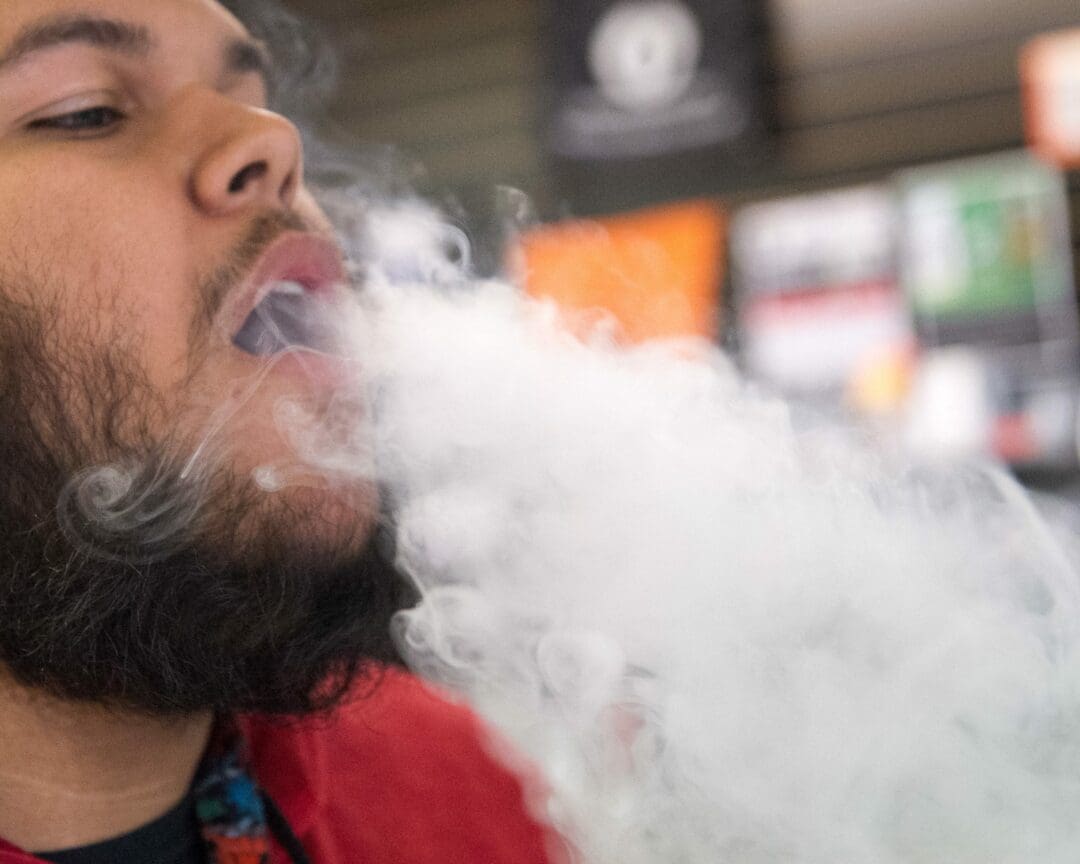BETHLEHEM — The Town Board voted 4-1 in its Dec. 11 meeting to extend the existing moratorium on permitting new vape stores by another six months.
The moratorium, set to continue from Dec. 29 to June 28, 2020, had already been in place since June 26. It specifically concerns “the submission and processing of applications for building permits, certificates of occupancy, and land use approvals for vape shops, smoke shops and the sale of marijuana or marijuana products, or the dispensing or distribution of medical marijuana,” according to town documents.
The moratorium was originally created as the town had received two building permit applications earlier this year for proposed stores that would sell products like vaping devices and medical marijuana.
One application was to be located on 243 Delaware Ave. close to Elsmere Elementary School and the other on 365 Feura Bush Road which was 1,800 feet from Glenmont Elementary School. This raised questions about whether such a store should be located near a school and young children. Bethlehem has one existing standalone vaping shop so far: Interstate Vapor, located on 340 Delaware Ave., which opened in 2015.
Town Board member Jim Foster has been the only one who voted against the moratorium both on June 26 and Dec. 11. In a phone interview, Foster said that he continues to be concerned about it.
He explained that once a moratorium leads the town to decide whether to amend existing zoning laws, create a licensing system or some hybrid of that, “a single decision can cause adult users to may not have a local option anymore and that could turn them onto the black market or online marketplaces where products may be much more dangerous. My concern is based on health concerns for both children and even adults and the danger related to the black market.”
Foster added that he remains skeptical that a moratorium would have a meaningful impact on the community and people’s health. “It looks good but it falls short,” he said.
Robert Leslie, the town’s Planning Division director, spoke before the town board on Dec. 11 about how town staff have already been researching ways to regulate vaping products and e-cigarettes.
He noted that vaping and tobacco products cannot be separately regulated because vaping products are a type of tobacco products. “Vaping is a delivery system for nicotine, no different than cigarettes are a delivery system for nicotine. So, you can’t differentiate between the two in your zoning laws,” he said. “Essentially, if you’re looking to regulate vaping products, you have to regulate tobacco in a locality and regulate tobacco retailers.”
As of Dec. 1, there are 16 locations in town that are state-registered tobacco and/or vape retailers, 14 of which include gas stations and convenience stores.
There are two main regulatory options that the town could consider moving forward: zoning and licensing.
With zoning, “It’s important to know that zoning essentially grants rights attached to land and zoning regulations allows certain types of uses, like residential uses, commercial uses and industrial uses in certain areas of the town to ensure compatibility with surrounding land uses,” said Leslie.
If the town amends zoning, it can regulate tobacco retailers as a business type that is a separate use from retail business types; establish the use as a site plan/special use permit approval action by the Planning Board; establish distance requirements of the business type from schools, youth facilities, daycare centers and even other tobacco retailers.
However, he added that “zoning cannot be used to regulate the sale of certain products.” Zoning also cannot exclude tobacco retailers from certain zoning districts in town if it’s based on moral concerns — in this case, if people don’t like a product because they feel it is morally wrong.
“Vaping is a product we can’t use zoning alone to regulate the sale or product. That’s where licensing comes in,” said Leslie. “Using a licensing system, from what we’ve learned, is the most legally defensible measure, should we ever be challenged.”
A licensing system would grant rights and the privilege to a person who has the license to sell a product; such a system would apply to existing and future tobacco retailers. Licensing can also regulate product sales based on a public health concern, like how physically close a retailer is to a school, for example.
Leslie explained that a public health concern differs from a moral concern in that the former is backed by proven secondary effects studies. He brought up the example of an adult business and how studies, covered by institutions including Harvard University and even the national Supreme Court, have reported it can negatively affect property values, can cause public nuisance and increase crime rates. “There are no such studies that show tobacco as causing a nuisance or diminishing property values so we can’t treat how we zone adult businesses the same manner that we may want to regulate tobacco retailers,” Leslie said.
A licensing system can also limit flavored products, limit discounted sales and like with amending zoning, it can establish distance requirements of a tobacco retailer from schools, youth facilities, daycare centers and other tobacco retailers.
Looking ahead, the town also would consider policy decisions regarding tobacco, medical marijuana dispensary, recreational marijuana and cannabidiol (CBD) retail use. The extended moratorium seeks to allow time for the town board to consider developing a licensing system, provide guidance on how to approach regulations and town staff to draft those regulations based on the board’s guidance. Town staff would also refer potential zoning amendments to the Planning Board.
“This certainly isn’t a planning-only decision, we’re just trying to provide you [the town board] with all the information so you can make an educated decision as we move forward,” Leslie concluded.



